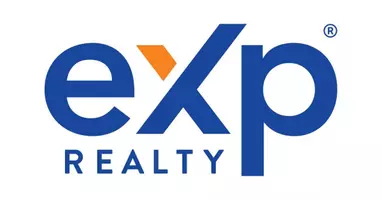Blog > Pros and Cons of 2nd Home Loans, DSCR Loans, and Investor Loans

Let's explore the pros and cons of 2nd Home Loans, Debt Service Coverage Ratio (DSCR) Loans, and Investment Loans! We teamed up with Brenna Carles, CEO and Founder of The Mortgage Shop, to provide this breakdown so you can make the most informed decisions for your STR investment objectives. From lower down payments to flexible property financing, we highlight key considerations to help you maximize returns and mitigate risks!
Pros and Cons of 2nd Home Loans:
Pros:
- Lower interest rates at times: Second home mortgages can come with lower interest rates compared to investment loans but the key is the lesser required down payment.
- Lower down payments: Second home loans can be as little as 10% down as opposed to a true investment being at least 15% down.
- You are able to rent out your second home when you are not occupying, so this will help you get into the investing world. (Be careful as some banks will not allow you to rent out your vacation home, so always ask if they allow this or not).
Cons:
- Mortgage insurance will be added with anything lower than 20% down so don’t forget to account for that in your monthly payment.
- You have to qualify for this loan on your personal income and personal debt through your debt to income (DTI) ratio.
- If you spend more time at the property than normal, you may not be able to qualify for a cost segregation study. Reach out to your cost seg specialist or CPA to ask these questions.
- You cannot use any proposed rental income towards the purchase as you could with an investment only loan.
- You can only have one second home per household per area. For example, if you get a second home in Boone, NC, you wouldn’t be able to have another second home loan there since it’s the same area.
Pros and Cons of DSCR Loans:
Pros:
- Focus on rental property cash flow: DSCR loans are based on the rental property's cash flow rather than personal income, simplifying qualification for investors.
- There are options with no prepayment penalties! The Mortgage Shop can help you with this.
- No income verification: DSCR loans typically don't require employment verification or income checks, streamlining the loan process.
- Flexible property financing: DSCR loans can finance various property types, including residential, commercial, and multi-family properties, offering versatility for investors.
- Potential for multiple property financing: DSCR loans often have no limits on the number of properties financed, allowing investors to expand their portfolios without restrictions.
Cons:
- Stringent loan terms: DSCR loans may have stringent requirements for down payments and interest rates compared to conventional loans, making them less accessible for some investors such as prepayment penalties.
- DSCR loans go off of the projected rental income on the property you are purchasing. If it doesn’t come in at least at a 1:1 ratio, then you may have to put more money down.
- To get a good DSCR loan with a lower interest rate, you will need at least 20% down. There are options with 15% down, but the rates are very high and the Debt Service Coverage Ratio usually will not work.
- Higher interest rates: Interest rates on DSCR loans are generally higher than traditional mortgages, increasing the cost of borrowing for investors.
Pros and Cons of Investment Loans:
Pros:
- Income generation potential: Investment properties can generate rental income, helping cover mortgage payments and providing additional cash flow.
- Potential for property appreciation: Over time, investment properties may appreciate in value, offering long-term capital appreciation potential.
- Tax benefits: Owning an investment property can offer tax advantages, such as deductions for mortgage interest and property taxes, reducing taxable income.
- Portfolio diversification: Investing in real estate allows diversification of investment portfolios, potentially reducing overall investment risk.
Cons:
- Higher interest rates: Investment mortgage loans typically carry higher interest rates compared to traditional mortgages, increasing the cost of borrowing.
- You still have to qualify off of your DTI as well but you are able to still add proposed rental income.
- Stricter qualification criteria: Lenders often require larger down payments and stricter qualification criteria for investment mortgage loans, limiting accessibility for some investors.
- Property management challenges: Managing investment properties can be time-consuming and may incur additional expenses, such as property management fees, impacting overall profitability.
- Market risk: The value of investment properties may decline over time due to market fluctuations, potentially resulting in financial losses for investors.
We recommend that all loan types mentioned above should be financed with a savvy investor lender, like The Mortgage Shop. They specialize in investment properties and vacation home loans. You can schedule a call at http://www.mortgageshopmlo.com or feel free to email the Brenna if you have any follow up questions at brenna@mortgageshop.co


